Obama Shouldn’t Back Down
It is said after every election that the victors should put politics aside and work for the good of the country. If President Obama believed this pious nonsense, he would put his second term in jeopardy.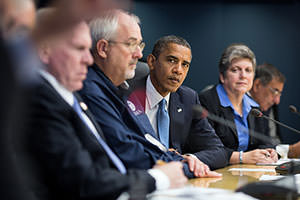
It is said after every election that the victors should put politics aside and work for the good of the country.
If President Obama believed this pious nonsense, he would put his second term in jeopardy. Asking politicians to ignore politics is like insisting that professional hockey players switch to basketball. In a system with national elections every two years — and in which the two parties are in relatively close balance — politics never disappears.
Fortunately, the president knows foolishness when he sees it. He has been toughened by four years of unremitting Republican opposition and has behind him both a large Electoral College victory and an advantage of about 3 million popular votes. The word “mandate” is overused — just ask George W. Bush. But Obama was absolutely clear during the campaign about his insistence that taxes on better-off Americans need to rise as part of any deal on the budget deficit and “fiscal cliff.”
And so did Obama gracefully but firmly challenge Republicans on Friday to extend the Bush-era tax cuts for the middle class immediately and then begin negotiations on how to raise taxes on the well-to-do. He was asking them to give up their leverage because he knows they don’t have much leverage to begin with. Meet the newly empowered Obama.
The voters clearly heard what Obama was saying during the campaign. According to the media exit poll, only 35 percent of voters said taxes should not be increased. Fully 47 percent of all voters supported raising taxes on Americans earning $250,000 or more, including 66 percent of Obama’s voters. An additional 13 percent, of all voters and Obama’s, said taxes should go up for everyone.
If Republican leaders in Congress want to pretend that Obama’s re-election means absolutely nothing, the president seems willing to let all the Bush tax cuts expire. This is the only way to deal with recalcitrance, reflected in the fact that Senate Minority Leader Mitch McConnell didn’t even let the president make his case on Friday before issuing a flat statement rejecting any tax increases. Obama can only hope that he can break more reasonable Senate Republicans away from their hard-line leadership.
House Speaker John Boehner has tried to sound more reasonable, and Obama took him at his word. Graciousness comes easily when you are operating from a position of strength.
Still, even in his conciliatory mode, Boehner made clear that preserving low tax rates for the rich remains the GOP’s single highest priority. The speaker said he might support new revenue, but only through some vague “tax reform.” But that’s what Mitt Romney offered during the campaign. Boehner is saying he will make a deal with the victorious candidate only on the basis of the program of the defeated candidate. Here’s hoping this is just a bargaining position.
By emphasizing Obama’s victory as a demographic and organizational triumph, conservatives have been laying the groundwork for renewing their sotto voce campaign suggesting that Obama is somehow “illegitimate” or not “one of us.”
Yet the exit poll found that those who rallied to Obama represent a broad coalition of all of us. Yes, he won African-Americans, Latinos and Asian-Americans overwhelmingly. But the exit poll also shows that 32 percent of Obama’s voters were white women and 24 percent of them were white men, while 23 percent were African-American men and women, and 14 percent were Latinos. This is a genuinely diverse alliance.
Obama’s victory was also plainly a triumph for the center-left: 46 percent of Obama’s voters called themselves moderates, 42 percent called themselves liberals, and 12 percent said they were conservatives. Judging by its attitudes toward unfairness in the economy, this is far more a populist coalition than an Establishment center. Obama’s voters are invested in growth, raising incomes and reducing unemployment, not austerity and budget balancing.
And this may have been the most important aspect of Obama’s first post-election policy statement. He did not lead with balancing the budget. “Our top priority,” he said right at the start, “has to be jobs and growth,” and then listed his proposals to expand opportunities.
Obama seems to understand that the interests of the coalition that elected him overlap with the national interest. That’s why he needn’t fear the politics of the moment. For the first time in a long time, the politics are working in Obama’s favor.
E.J. Dionne’s e-mail address is ejdionne(at)washpost.com.
© 2012, Washington Post Writers Group
Your support matters…Independent journalism is under threat and overshadowed by heavily funded mainstream media.
You can help level the playing field. Become a member.
Your tax-deductible contribution keeps us digging beneath the headlines to give you thought-provoking, investigative reporting and analysis that unearths what's really happening- without compromise.
Give today to support our courageous, independent journalists.


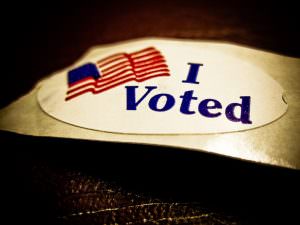
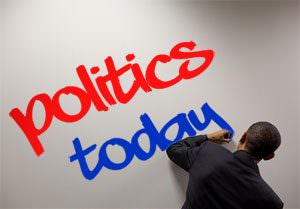
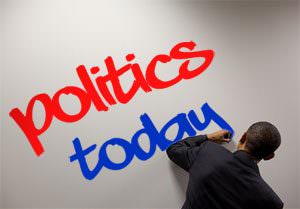
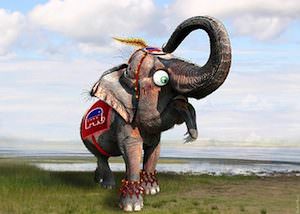



You need to be a supporter to comment.
There are currently no responses to this article.
Be the first to respond.